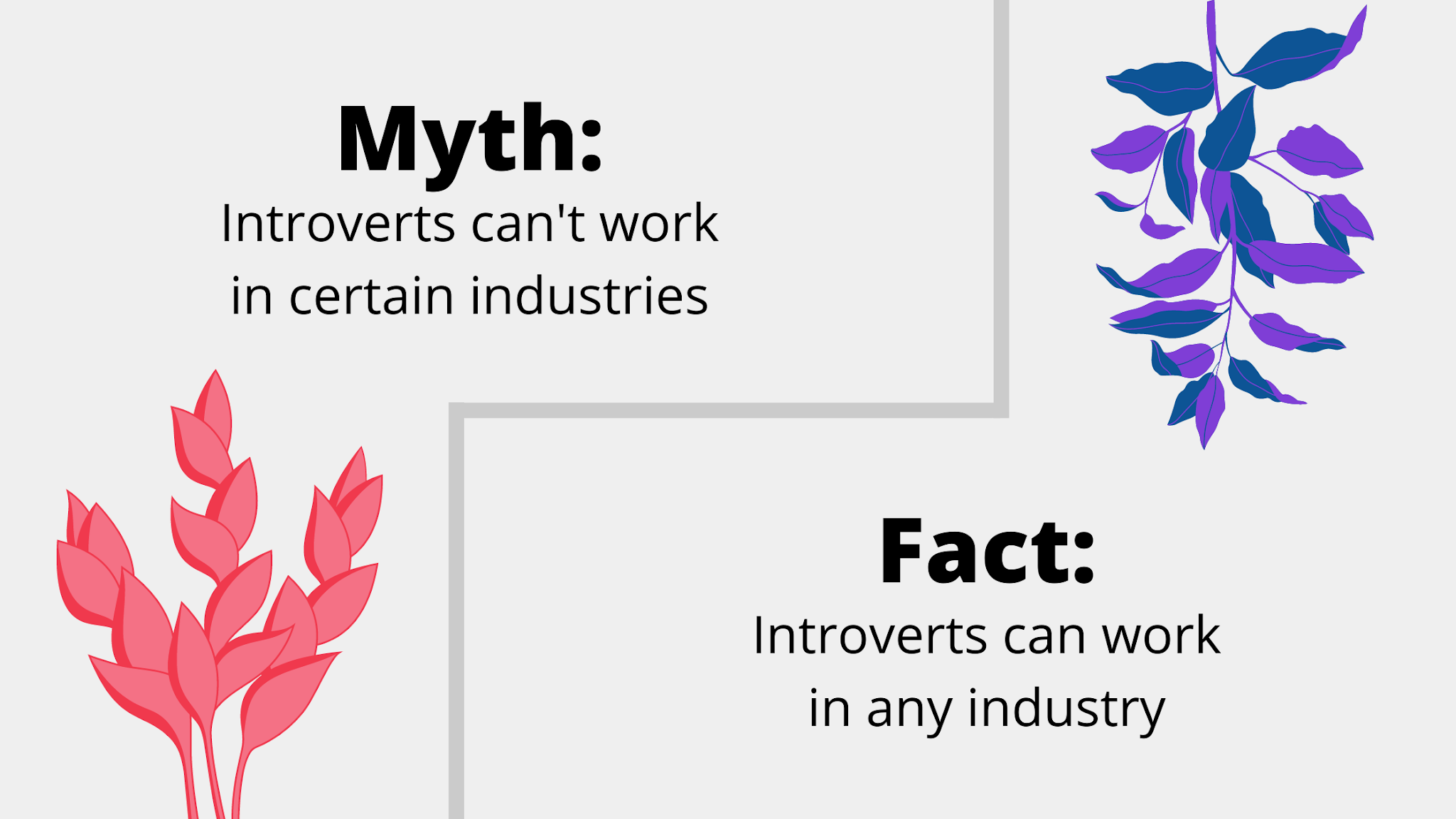Introversion: Not a Second-Class Personality
I'm not going to try to convince you that introverted individuals are better than extroverted individuals. I'm simply arguing that introverts are not worse, not team players, less engaged, paying less attention, boring, dry, tired, less creative, more sensitive, less charismatic, etc, etc, etc.
Instead, I'd like to introduce a new way of interpreting social signals and cues from introverts to understand and recognize how introverts are an asset to any professional team. Most people just want to do a great job, but introverts go and about it differently than an extrovert would, and this is a good thing.
What Are "Introversion" and "Extroversion"?

There are countless writings out there explaining the difference between
introverts and extroverts, so I won't dive too deep into this. The
foundational difference between introverts and extroverts is which situations
they feel energized in. Typically, introverts feel most energized when doing
solitary tasks and activities, such as writing and reading. Extroverts tend to
feel most energized in social situations and they enjoy large groups of
people.
Notice that I didn't mention anything to do with social skills, intelligence,
or creativity. Unfortunately, it can be easier to try to apply
stereotypes to other people instead of getting to know them and evaluate them
on a one-by-one basis. As a result, just because an introvert might tend to be less ready to
jump into a group conversation at work, they might be told that they're not fun.
Meanwhile, the reason they aren't jumping in to the conversation is really because
they're listening deeply, analyzing what is being said, and waiting until they have
something of value to add.
Of course, introverts know that others can't read their minds and figure out what is
happening internally. Rather, I'd argue that it's worth the effort to understand that the action of being quiet ≠ being disengaged from the social
culture at work. All introverts want is the benefit of the doubt.
Misconceptions About Introverts

There are a lot of common misconceptions about introverts that I think lead to people devaluing us and the work we do. I've suggested some alternative ways to view our behavior below. Keep these in mind when interacting with the introverts in your life.
| Misconception | Reality |
|---|---|
| Unfriendly or antisocial. | Reserved and observant before speaking. |
| Shy or low-energy. | Don't feel the need to talk a lot. |
| Hyperfocused or easily distracted. | Prefer to concentrate on one thing at a time. |
| Don't enjoy social situations. | Better 1-on-1. |
| Lack confidence. | People are less likely to notice our confidence cues. |
Confidence isn't just for extroverts. #introvert #introvertlife https://t.co/RtV9jlwd0v
— Introvert, Dear (@IntrovertDear) July 18, 2020
How to Overcome Introversion at Work

So, after all that, how can one overcome introversion at work? The answer is: you don't have to! Haven't you been paying attention? Introversion is not a character flaw. We are not secondary to extroverts. We are just different and that is not a bad thing.
For example, I recently started doing live streams for my job in which I intervew a subject with a focus on digital marketing and technology. I didn't expect this task to be an area where I could thrive. I used my introverted tendencies to tackle this new challenge. I carefully planned and prepped and by the time I executed my first interview, I felt confident. This was reflected on camera and the interview was a success.
Comments
Post a Comment